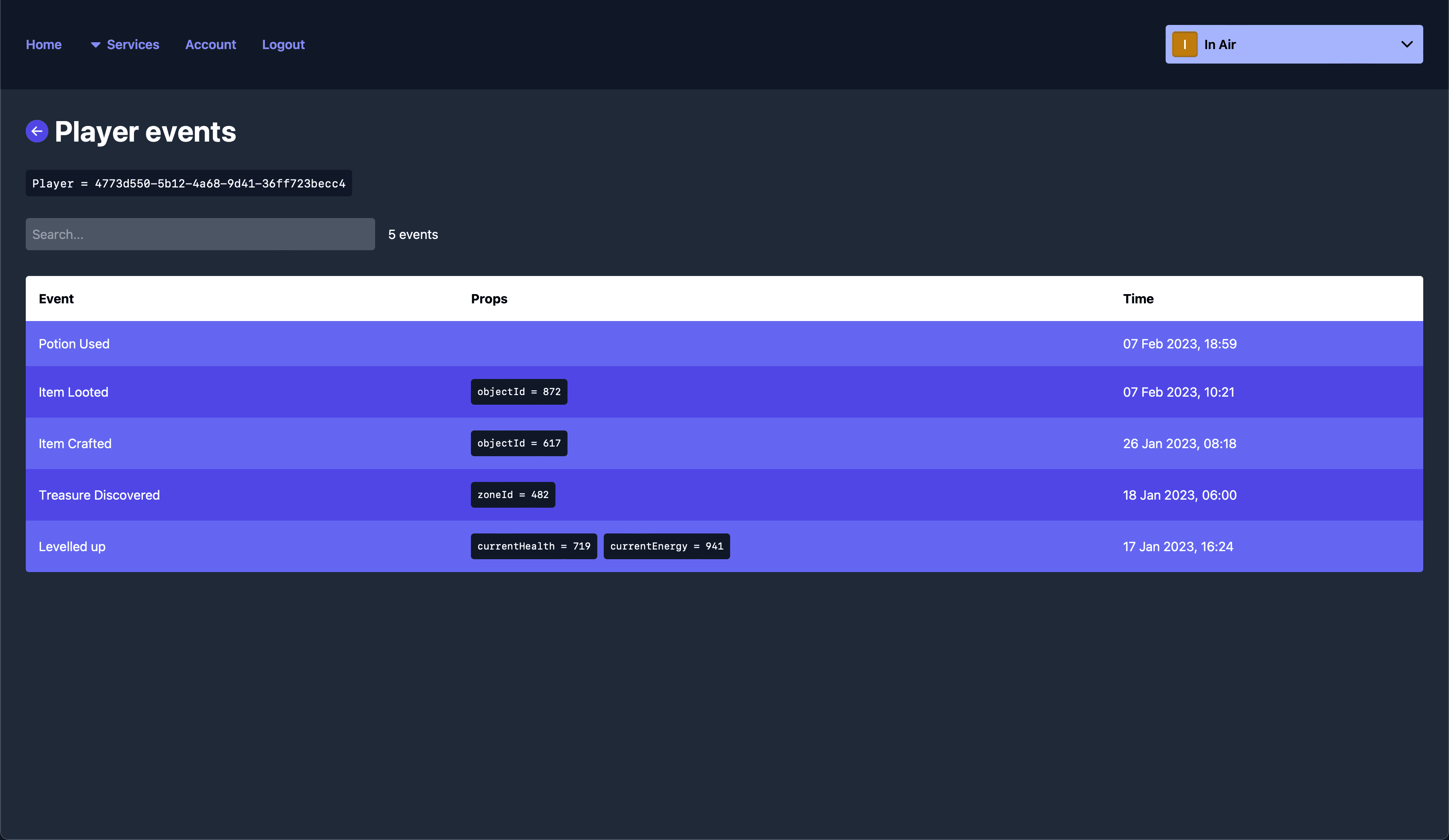Event tracking
TL;DR
Event tracking is a simple way to understand your players and their actions. When you track an event (e.g. "Level up", "Item bought", "Character selected"), you can see how often it happens and when it happens inside the Talo dashboard.
Talo makes tracking game analytics simple and accessible to anyone building a game - regardless of their experience.
Better decision making
Event tracking lets you get rid of the guess-work. By tracking important actions when they happen, you're able to gauge how well a mechanic is being used and even track the overall progress of your players. See how often potions get used, items get bought and how many level-ups there are per day, month or year.
For example, you might want to check how often players are levelling up. You can do this by tracking an event named, for example, "Levelled up". When players level up, you track this event through Talo and you could even send through their new level and the time it took them to progress from their previous level to this level.
This data allows you to see if players are levelling up too quickly, in which case you may want to increase the experience required per level, or too slowly in which case you may want to do the opposite.
Sometimes it's also helpful to compare multiple events to see which is more popular and adjust accordingly. A standard use case for this is when your game has multiple characters to choose from.
By tracking an event for each character, for example "Character 1 Chosen" and "Character 2 Chosen", you can see the pick rate of both. You may decide to make adjustments because one character is being picked significantly more than the other. After making these changes, you can watch for realtime shifts in the data to spot patterns and continue to iterate.
Understand player journeys
Talo provides you with each individual player"s event history. You can inspect a player"s history to track down the reason a bug may have occurred. You can then take these logs and retrace the player"s steps.
Event logs display all properties you send through with the event, allowing you even greater access to understanding how individual players play your game. If you're using player groups to track a segment of players who have beta access, you can inspect these players" event histories to see how well the beta is performing.

Looking for a specific event or property? The Talo dashboard lets you filter on both event names and event property keys too. You can easily pinpoint the exact time a player reached max level by tracking an event when players level up and passing through their new level as part of the event.
Breakdown by props
Each event you track can also send through arbitrary properties (known as props). Props are key/value pairs that give extra context to events, for example a "Potion used" event could have a "type" prop where the value is "HP" or "MP".
You can drilldown into events to also compare props. In the example above, you could see how many "HP" potions are being used over "MP" potions.
Debugging with meta props
Events send through metadata about the player (Godot plugin docs here) such as their operating system and version of the game they're running. This allows you to easily debug common problems based on players' configurations.
Meta props are also used to clearly identify players that were created as part of internal builds, i.e. test players owned by developers. See the docs to learn more about how Talo separates development data in the Unity package and in the Godot plugin. These players can be hidden from the dashboard and omitted from data exports easily using the "dev data toggle" on the dashboard.

Frequently asked questions
1.What is event tracking?
Event tracking is a way to understand player actions by logging key moments in your game, such as "Level up", "Item bought", or "Character selected".
2.Why should I use event tracking?
It helps you make better decisions by removing guesswork. You can see how well features are used, track player progress and balance your game more effectively.
3.How do I track events?
You can track an event using the Talo Godot plugin or Talo Unity package. Simply send an event name and (optionally) some properties and your new event(s) will be automatically displayed in the dashboard.
4.What are props?
Props are key/value pairs sent with events to give extra context. For example, a "Potion used" event could include a "type" prop with a value of "HP" or "MP".
5.Can I compare events to see which is more popular?
Yes. For example, if your game has multiple characters, you can track events like "Character 1 Chosen" and "Character 2 Chosen" to compare pick rates. You can also have a "Character Chosen" event with a "character" prop.
6.Can I compare props?
Yes, you can drill down into events to compare how different prop values are used, like comparing usage of "HP" vs "MP" potions.
7.What are meta props?
Meta props are automatically sent with events and include player metadata like their OS and game version, useful for debugging.
8.Can I separate developer test data?
Yes, Talo tags dev builds automatically and you can use the "dev data toggle" on the dashboard to hide them from analytics and exports.